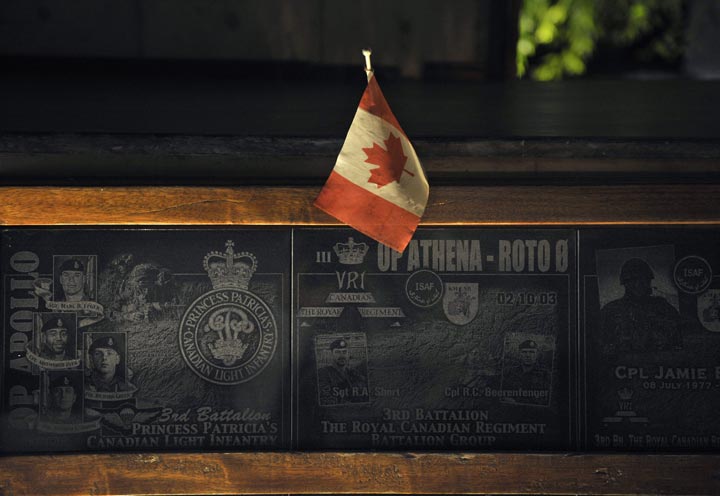OTTAWA – It may yet serve as the epitaph to Canada’s nearly 12-year involvement in Afghanistan.

In his long-awaited book about the Afghan war, Graeme Smith writes what others have long thought but rarely said out loud about the violently poor, landlocked south Asian country where some say empires go to die.
“We lost the war in southern Afghanistan and it broke my heart,” Smith – a former foreign correspondent with the Globe and Mail – writes in the opening sentence of his intense, unflinching memoir.
Many, particularly those who run in military and political circles and whose reputations rest on history’s judgment of that nasty, never-ending guerilla war, would disagree. The army never lost a battle, they say.
And now, Afghanistan – and Kandahar in particular, which once burned at the centre of Canada’s national interest – have all but disappeared from the public conscience since the Canadian combat mission ended in 2011, Smith said in an interview.
“Nobody likes to fail, especially if you’re trying to do something good,” said Smith, who now works in Kabul as an analyst for the International Crisis Group, a non-governmental agency that monitors the world’s hot spots.
Asked what it was all for, Smith was philosophical: “I take Canadians at their word. We said it was for peace and security and democracy. And you could still argue about democracy in southern Afghanistan, but peace and stability we did not achieve.”
- Life in the forest: How Stanley Park’s longest resident survived a changing landscape
- Bird flu risk to humans an ‘enormous concern,’ WHO says. Here’s what to know
- Mental health support still lacking 4 years after mass shooting: Nova Scotia mayor
- Buzz kill? Gen Z less interested in coffee than older Canadians, survey shows
Smith is currently on tour promoting the book, entitled “The Dogs are Eating Them Now” – a reference to one Canadian soldier’s frank assessment of the fate of Taliban bodies that were left on the battlefield in 2006 in hopes of drawing more enemy fighters out into the open.
His assessment of what happened, along with what sort of war the Afghans will inherit next year when the lingering Canadian soldiers finally leave, is sobering.
“We’re leaving behind a great big mess. That should inspire us to clean up the mess in some new and creative way and it’s not. It’s inspiring us to give up and walk away,” he said.
“I think it’s really, really disappointing for the Canadians who’ve been involved in the mission and probably also for the people back home, I’m guessing, to see all of our good intentions collide with reality in such a spectacular way. It is very tempting in that kind of situation to just throw up your hands and give up, but the problem is, you know, that we really need to be learning from our mistakes.’
But instead, Smith contends, Canada is going the other way.
Starting next month the first of 950 soldiers, who’ve been training the Afghan army, will begin a phased withdrawal heading towards a final mission close-out in March next year. The Harper government has already trimmed aid.
Yet statistics compiled by Smith’s organization, as well as the Centre for Strategic and International Studies in Washington, show that unlike Iraq following its troop surge, the level of violence in Afghanistan is increasing, not decreasing.
NATO’s commander recently expressed his fear that fledgling Afghan security forces were suffering an “unsustainable” level of casualties – a sentiment backed up in a report last month by Afghanistan expert Anthony Cordesman.
On average, over 100 Afghan troops and police are being killed every week, and another 300 wounded.
Smith, who still travels throughout Afghanistan, said that despite the carnage, the rural districts don’t seem ready to “roll over” and continue to fight the Taliban with increasing determination. But the bitterness of the fighting has led to reports of gross human rights violations.
The West, he says, is leaving behind an unfinished war when it completes the withdrawal of most combat troops. The big question in his mind is whether war-weary governments will continue to back the administration in Kabul.
“It is a tough sell sometimes, persuading people to care,” he said. “In some ways, Afghanistan’s future depends on how guilty we feel. If we feel responsible for the mess we’re leaving behind, then we’ll remain engaged.”
Throughout the Canadian mission in Afghanistan 158 soldiers, one diplomat, two aid workers and a journalist were killed. The country spent between $11 billion and perhaps as much as $18 billion on the war effort and aid.



Comments